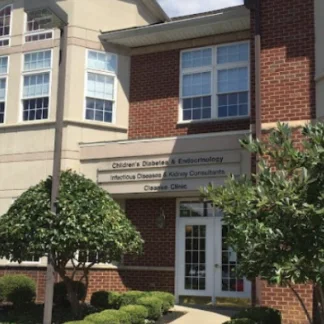Life Management
Life Management is a private rehab located in Louisville, Kentucky. Life Managem...
Cleanse Clinic is a licensed outpatient addiction recovery facility in Louisville, Kentucky. Cleanse Clinic provides a comprehensive suite of addiction recovery services including Medication Assisted Treatment, an Intensive Outpatient Program, and personalized therapy services.
Contact us for more information: (502) 938-0511

Connect with Cleanse Clinic by calling their admissions team directly.
(502) 938-0511 Website Get DirectionsThe Commission on Accreditation of Rehabilitation Facilities (CARF) is a non-profit organization that specifically accredits rehab organizations. Founded in 1966, CARF's, mission is to help service providers like rehab facilities maintain high standards of care.
CARF Accreditation: Yes
Cognitive Behavioral Therapy (CBT) is a therapy modality that focuses on the relationship between one's thoughts, feelings, and behaviors. It is used to establish and allow for healthy responses to thoughts and feelings (instead of unhealthy responses, like using drugs or alcohol). CBT has been proven effective for recovering addicts of all kinds, and is used to strengthen a patient's own self-awareness and ability to self-regulate. CBT allows individuals to monitor their own emotional state, become more adept at communicating with others, and manage stress without needing to engage in substance abuse. The Cleanse Clinic therapies are conducted in accordance with CBT and other methodologies that are evidence-based to ensure the most effective treatment. Over time, patients will become empowered in their thought processes and become able to approach their substance abuse and addiction with new recovery tools.
Research clearly demonstrates that recovery is far more successful and sustainable when loved ones like family members participate in rehab and substance abuse treatment. Genetic factors may be at play when it comes to drug and alcohol addiction, as well as mental health issues. Family dynamics often play a critical role in addiction triggers, and if properly educated, family members can be a strong source of support when it comes to rehabilitation. The recovery of addiction is a process that usually extends beyond the identified patient; entire families may be affected. They provide family education, support, and therapy to increase chances for a successful recovery.
Group therapy provides broader insight and support in the development of tools to reduce and prevent relapse. The group process provides the most effective, evidenced-based treatment to help patients recognize the universal nature of their addictions in a safe, non-judgmental setting to help gain insight from many different facets.
In individual therapy, a patient meets one-on-one with a trained psychologist or counselor. Addiction is more than a physical dependence on substances. There are often strong psychological and social pressures that need to be addressed to avoid relapse. A private setting allows for patients to share their stories and gain valuable support.
Research clearly demonstrates that recovery is far more successful and sustainable when loved ones like family members participate in rehab and substance abuse treatment. Genetic factors may be at play when it comes to drug and alcohol addiction, as well as mental health issues. Family dynamics often play a critical role in addiction triggers, and if properly educated, family members can be a strong source of support when it comes to rehabilitation. The recovery of addiction is a process that usually extends beyond the identified patient; entire families may be affected. They provide family education, support, and therapy to increase chances for a successful recovery.
Group therapy provides broader insight and support in the development of tools to reduce and prevent relapse. The group process provides the most effective, evidenced-based treatment to help patients recognize the universal nature of their addictions in a safe, non-judgmental setting to help gain insight from many different facets.
In individual therapy, a patient meets one-on-one with a trained psychologist or counselor. Addiction is more than a physical dependence on substances. There are often strong psychological and social pressures that need to be addressed to avoid relapse. A private setting allows for patients to share their stories and gain valuable support.
Group therapy provides broader insight and support in the development of tools to reduce and prevent relapse. The group process provides the most effective, evidenced-based treatment to help patients recognize the universal nature of their addictions in a safe, non-judgmental setting to help gain insight from many different facets.
In individual therapy, a patient meets one-on-one with a trained psychologist or counselor. Addiction is more than a physical dependence on substances. There are often strong psychological and social pressures that need to be addressed to avoid relapse. A private setting allows for patients to share their stories and gain valuable support.
In individual therapy, a patient meets one-on-one with a trained psychologist or counselor. Addiction is more than a physical dependence on substances. There are often strong psychological and social pressures that need to be addressed to avoid relapse. A private setting allows for patients to share their stories and gain valuable support.
Life Management is a private rehab located in Louisville, Kentucky. Life Managem...
AA and Associates Approved Alcohol & Drug Programs is a non-profit rehab loc...
The Brook Hospital–Dupont offers comprehensive addiction recovery services for a...
Brook Hospital KMI – Kentucky is a private rehab located in Louisville, Kentucky...